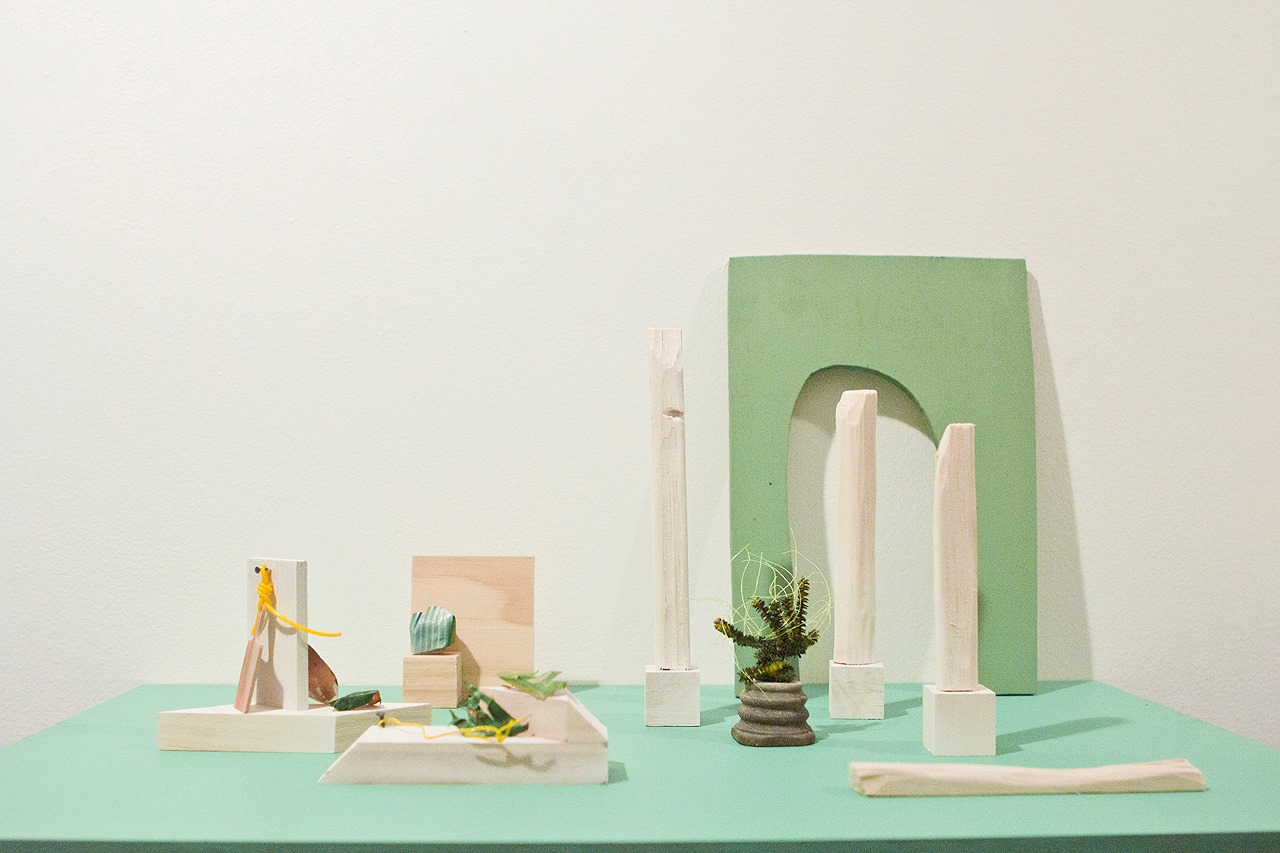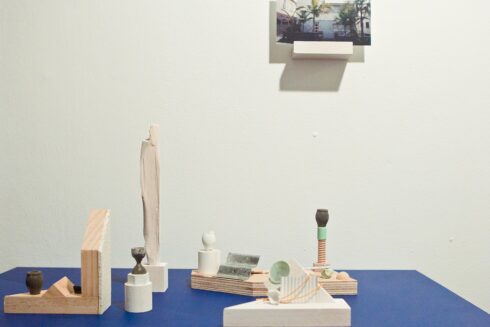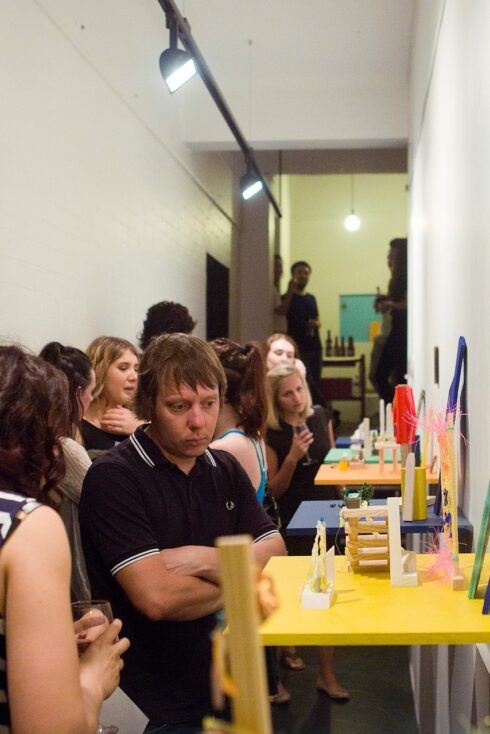- Description
For, ‘Park Road West’, Mavrick explores a playful approach to personal family-heritage, specifically navigating her position as a third-generation immigrant in Australia. Framing memory through personal recounts and archival materials, she examines idiosyncratic aspects of globalisation and cultural assimilation, looking specially at how these themes contribute towards an ideological understanding of place.
Mavrick’s grandparents lived on ‘Park Road West’, at Dutton Park, Brisbane. Cultural references could be seen a round their house, marking the family’s heritage within their new Australian context. The property boasted photos, religious icons, Minoan replica artefacts and Greek folk art, often depicting Greek text from religious and popular culture. Outside the house, pots lined with various plants frequented the surrounding architecture and neighbourhood.
Drawing from personal recounts and secondary research, the artist creates a layered approach to storytelling. In doing so, the collective memories of her extended family are accessed to compile an overall narrative to the exhibition. Mavrick references these memories, morphing and reducing them into abstracted forms. These memory-forms are realised through both individualobject-based instances and larger more complex scenes.
The artist produces malleable. object-based nostalgia. Mavrick’s material explorations have been realised through copper shim that portray botanical shapes of mangos, monstera, dorikey’s tail succulents, basil, fennel, and grapevines. The works have their own spatial logic, and utilise constructed geometric pine shapes that act as bases. These bases employ a spatial logic. dividing smaller works from one another, categorising memories. Other materials specifically reference the domestic space of Mavrick’s grandparent’s house. such as dyed horsehair, plastic, mesh bags, powder coated metal components, painted mirror discs, and shaped and painted pipe cleaners.
The motivation behind this recent body of work was to engage with memories of a place, particularly once the people who lived there have moved on. This is especially relevant to migrant families who might not have access to traditional aspects of their culture once they have relocated. With this in mind. Mavrick considers: does place exist in a material sense, or is it a culmination of collective experiences accessed through memory? Is memory representative of what actually happened. or is it always going to be biased? These are the questions Mavrick is asking both herself and audiences in Park Road West.
–
Writing by Tess Maunder


